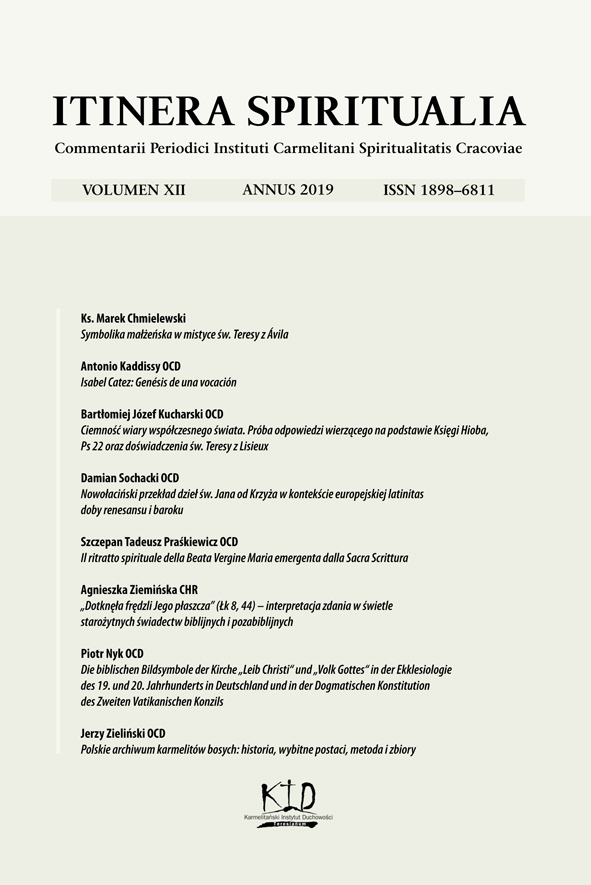Nowołaciński przekład dzieł św. Jana od Krzyża w kontekście europejskiej Latinitas doby Renesansu i Baroku
The Neolatin Translation of the Works of St John of the Cross in Context of Renaissance and Baroque Latinitas in Europe
Author(s): Damian SochackiSubject(s): Christian Theology and Religion, Language and Literature Studies, Social history
Published by: Wydawnictwo Karmelitów Bosych
Keywords: Andrzej Brezchwa; translation; Latin, John of the Cross; Baroque
Summary/Abstract: The author focuses on issues relate to Neolatin translations, illustrating the basic assumptions of the so-called Jesuit baroque translation of the works of St John of the Cross, prepared by Andrzej Brzechwa (1584–1640), the first Polish Discalced Carmelite. Latin translations from vernacular languages became popular as early as the end of the Middle Ages, e.g. Giovanni Boccaccio’s The Decameron, thanks to its translations in prose and verse into the Romans’ language, found readers all over Europe. Brzechwa’s translation was in many respects a pioneering work, but it has not been scientifically reviewed yet. Although it does follow the extremist assumptions of Latin Baroque poetry (pure style, classical vocabulary), its rich workshop and preparation are laudable: an example may be the equivalent of the popular Spanish stanza proposed by Brzechwa: the so-called lyre in the form of the classic Sapphic stanza. This article, after a brief review of the distinctive features of Neolatin literature of the 17th century, analyses the grammatical and rhetorical layers of Brzechwa’s translation. It presents strategies for translating key phrases of the prose and poetry of St John of the Cross, comparing Brzechwa to one of the greatest representatives of Polish Latin Baroque, Maciej Kazimierz Sarbiewski (1595–1640).
Journal: Itinera Spiritualia. Commentarii Periodici Instituti Carmelitani Spiritualitatis Cracoviae
- Issue Year: XII/2019
- Issue No: 1
- Page Range: 59-80
- Page Count: 22
- Language: English, Polish

